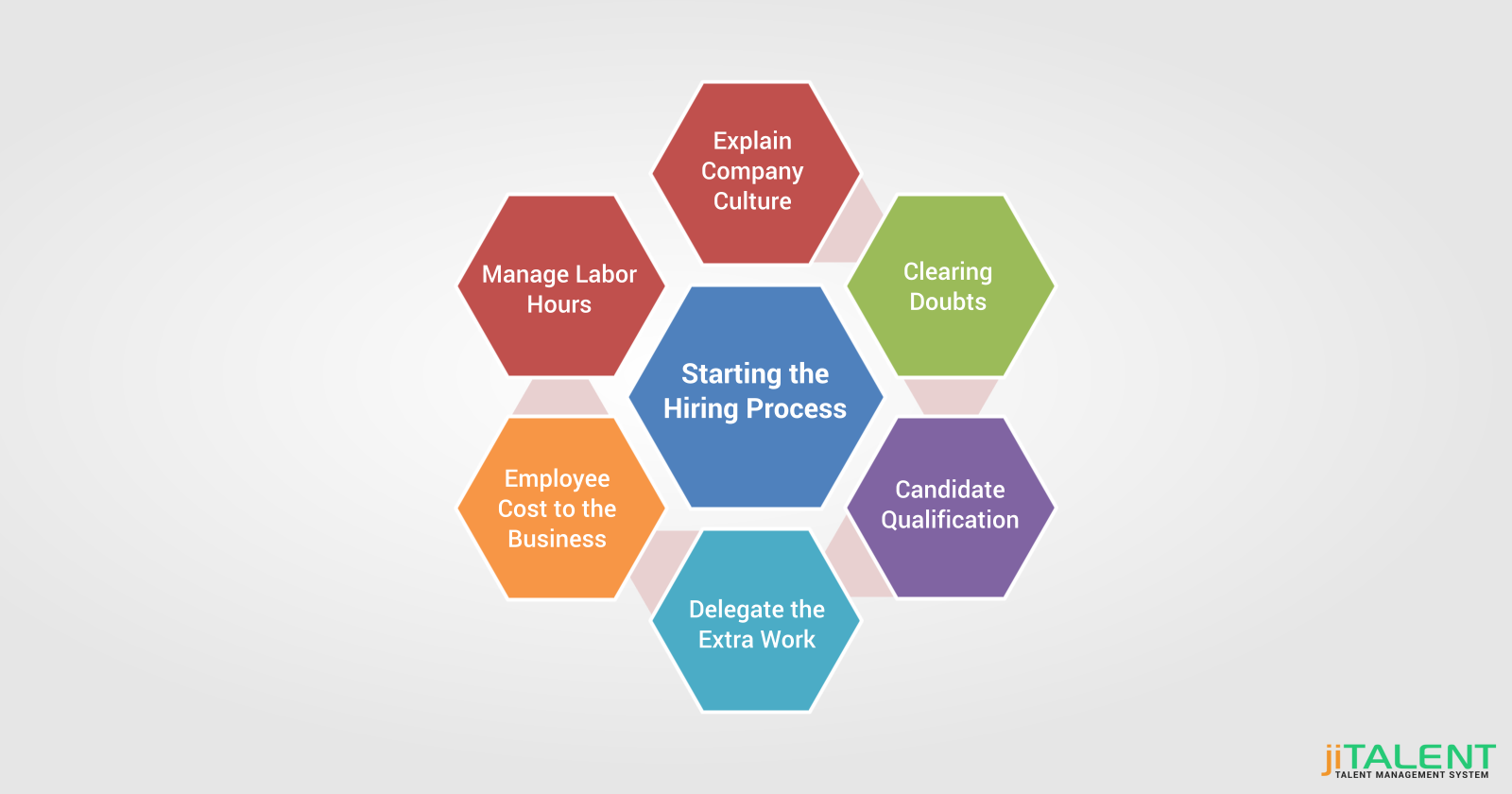Hiring an employee is an important decision that has a significant impact on your company. There are various questions that hiring managers or employers should ask themselves prior making a hiring decision. A few questions should be addressed before recruiting, while other questions may be addressed after screening the eligible job candidates.
Explain Company Culture: Company culture fit embraces many aspects of an employee’s personality, attitudes, and goals. It can be hard to tell whether an employee will be exactly right for a company’s culture, but defining company culture and gearing interview questions can be extremely helpful in assessing fit. Every company is different, so taking the time to really assess culture and fit can help to reduce new employee turnover and preserve what’s great about the existing culture.
Clearing Doubts: Doubts and red flags can be an indication that something about a candidate does not fit with the company. If an employee checks all of the boxes, but there are lingering doubts, it may be best to schedule a second interview with a different manager or member of the hiring team to be completely sure about the candidate. If there are still doubts about hiring a candidate after a second interview, the employee should be declined for the position.
Candidate Qualification: After deciding to hire the candidate, it is important to consider skill test questions related to candidates that are screened for the open position. An unqualified candidate can damage a company’s cost money, reputation, and increased turnover, therefore, qualifications should be one of the first considerations. A qualified candidate can help a company in various ways and can save a huge amount of money on training.
Delegate the Extra Work: This question is relevant to startup businesses. Employers, in some cases, may hire as they think they are moving on too much or see the business growing at a rapid speed. However, it may be more strategic and cost-effective to delegate the extra work to the existing employees which give a desirable boost to their paychecks as well as hours.
Employee Cost to the Business: A new employee, without any doubts, will obviously have to be paid, however, there are other costs that should also be considered. A new employee will be hired through huge recruitment efforts, followed by onboarding, training, and perhaps given a uniform or equipment. Insurance and taxes costs also add to the cost of the employee that is paid to the employee.
Manage Labor Hours: If it becomes difficult to delegate the extra work to the existing employees, one can consider the labor hours their business can afford. It is not necessary to hire a full-time employee and it may be a good thought to hire a freelancer, part-timer, or a temporary employee which is a cost-effective idea.
Decisions about hiring can impact a company’s success and future growth, no matter what position is being hired for. Taking the time to consider some important questions before making that important decision can save time and trouble later.










Share this post on: